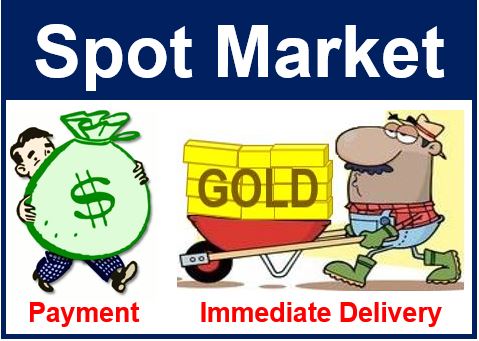Spot market
Spot market
A spot market is where financial instruments are exchanged for immediate delivery, such as commodities, currencies, and securities. Delivery, here, means cash exchange for a financial tool. In comparison, a futures contract is based on the delivery of the underlying asset at a future date. Over-the-counter (OTC) markets and exchanges may provide spot trading and/or futures trading.
How Spot Markets Work
Spot markets are also referred to as “physical markets” or “cash markets” because trades are swapped for the asset effectively immediately. While the official transfer of funds between the buyer and seller may take time, such as T+2 in the stock market and most currency transactions, both parties agree to the trade “right now.” A non-spot, or futures transaction, is agreeing to a price now, but delivery and transfer of funds will take place at a later date.
Futures trades in contracts that are about to expire are also sometimes spotting trades since the expiring contract means that the buyer and seller will be exchanging cash for the underlying asset immediately.
Assets Traded on Spot Markets
Financial instruments traded on spot markets include equity, fixed-income instruments such as bonds and treasury bills, and foreign exchange. Commodities also dominate spot markets through the trading of energy, metals, agriculture, and livestock. Spot markets also trade in perishable and non-perishable commodities.
The foreign exchange market, where traders exchange various currencies, is one of the largest spot markets worldwide with a daily turnover of over $6 trillion, making it the world’s most actively traded asset.
Commodities trade efficiently on spot markets. Crude oil is the most traded commodity. Recently, technology – such as bandwidth and mobile minutes – has been featured in spot markets with commodities.
Characteristics of Spot Markets
Below are the most apparent:
- Transactions settle at the ruling price which is the spot price or spot rate.
- Delivery of the asset takes place immediately or otherwise at T+2.
- Transfer of funds is instantaneous; otherwise, settlement can be at T+2.
